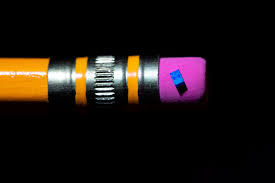
Breaking News
 Pentagon Partners With xAI Service For Military's Growing Artificial Intelligence Toolset
Pentagon Partners With xAI Service For Military's Growing Artificial Intelligence Toolset
 Pharmakeia: America's Seniors Are Being Overmedicated Into Oblivion
Pharmakeia: America's Seniors Are Being Overmedicated Into Oblivion
 The New Battle for the Americas: Why the Western Hemisphere Is Becoming a Global...
The New Battle for the Americas: Why the Western Hemisphere Is Becoming a Global...
Top Tech News
 Travel gadget promises to dry and iron your clothes – totally hands-free
Travel gadget promises to dry and iron your clothes – totally hands-free
 Perfect Aircrete, Kitchen Ingredients.
Perfect Aircrete, Kitchen Ingredients.
 Futuristic pixel-raising display lets you feel what's onscreen
Futuristic pixel-raising display lets you feel what's onscreen
 Cutting-Edge Facility Generates Pure Water and Hydrogen Fuel from Seawater for Mere Pennies
Cutting-Edge Facility Generates Pure Water and Hydrogen Fuel from Seawater for Mere Pennies
 This tiny dev board is packed with features for ambitious makers
This tiny dev board is packed with features for ambitious makers
 Scientists Discover Gel to Regrow Tooth Enamel
Scientists Discover Gel to Regrow Tooth Enamel
 Vitamin C and Dandelion Root Killing Cancer Cells -- as Former CDC Director Calls for COVID-19...
Vitamin C and Dandelion Root Killing Cancer Cells -- as Former CDC Director Calls for COVID-19...
 Galactic Brain: US firm plans space-based data centers, power grid to challenge China
Galactic Brain: US firm plans space-based data centers, power grid to challenge China
 A microbial cleanup for glyphosate just earned a patent. Here's why that matters
A microbial cleanup for glyphosate just earned a patent. Here's why that matters
 Japan Breaks Internet Speed Record with 5 Million Times Faster Data Transfer
Japan Breaks Internet Speed Record with 5 Million Times Faster Data Transfer
Intel makes smallest quantum computing chip with spin qubits

The new chip was created in Intel's D1D Fab in Oregon using the same silicon manufacturing techniques that the company has perfected for creating billions of traditional computer chips. Smaller than a pencil's eraser, it is the tiniest quantum computing chip Intel has made.
The new spin qubit chip runs at the extremely low temperatures required for quantum computing: roughly 460 degrees below zero Fahrenheit – 250 times colder than space.
Spin qubits are very small (about 50 nanometers across) and visible only under an electron microscope. About 1,500 qubits could fit across the diameter of a single human hair.
The design for new Intel spin qubit chip could be dramatically scaled up. Future quantum computers will have millions of qubits — and will be vastly more powerful than today's fastest supercomputers.

 No Excuses: Throw A Party!
No Excuses: Throw A Party!


